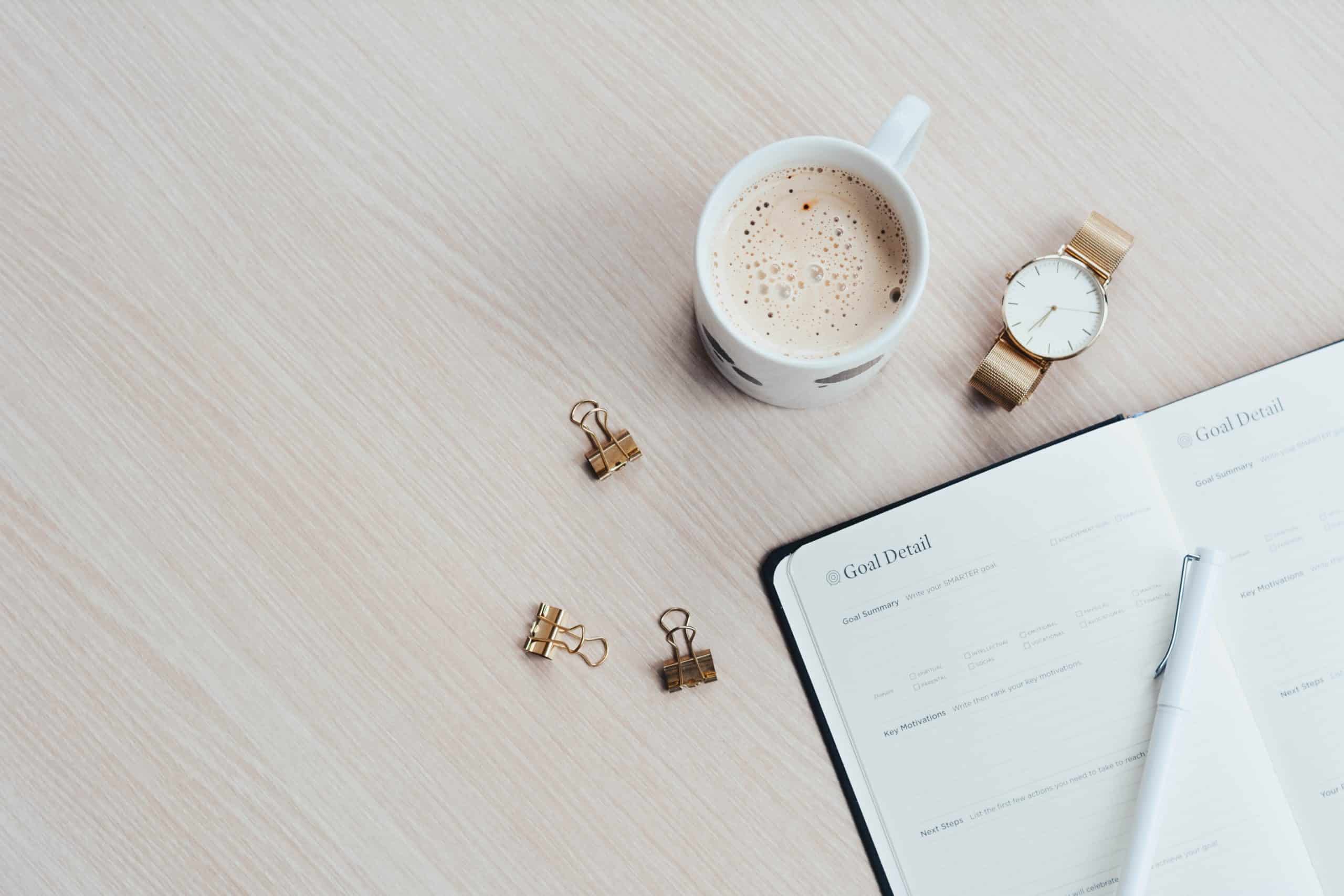
Whether you’re adjusting to working from home, navigating the challenges of home-schooling, coping with your local gym being locked down, or just missing your morning coffee from your favourite café, you’ve no doubt experienced a significant disruption to your daily routine due to COVID-19. And whether your pre-COVID routine was one that you had carefully curated to include a healthy balance of work, family time, physical activity, and psychological self-care, or whether it was something a little less deliberate yet still comforting in its familiar structure, you may be beginning to notice that a disruption to this sense of order is taking an emotional toll.
If this is the case, you’re not alone. Psychologists have long been aware of the benefits of a stable routine on mental wellbeing. Sudden disruptions can be hard to adjust to – especially during times like these where your options for substituting one activity for another might be restricted and re-establishing a sense or normality and order might seem next to impossible. On top of this, if you’ve been spending a lot more time at home than usual, you might find that staying motivated is a bit more challenging now without your normal work environment to keep you focused. It’s easy to get distracted, slip into Netflix binge-mode and extended periods of procrastination. Or maybe your previously reasonable 5pm finish to your work day is sliding into a not so healthy 9pm which then impacts on your sleep routine and overall energy.

Why Scheduling?
Psychologists often use a technique called ‘behavioural activation’ to help in the treatment of depression or in situations where low motivation has become a barrier to healthy levels of activity. This strategy can also be extremely helpful for managing milder symptoms of temporary low mood, stress, and anxiety which may have come about following a disruption to regular routine. Usually this process involves planning a series of activities that may provide opportunity for enjoyment or create a sense of achievement through increased productivity. Basically, it’s a way of ensuring that some of the basic elements needed for emotional wellness are present, and fortunately there are some very well researched behaviours that are highly correlated with mental wellbeing to give us some clues for what to include.
Here are some of the big ones: exercise, healthy diet, sleep (yep no surprises yet), a sense of meaningful productivity (think about whether this has changed for you recently), regular exposure to sunlight (very important for circadian rhythm which affects sleep and mood), and social connectedness. Does your current routine include all or at least most of these on a regular basis? Which of these might have been impacted by changes due to COVID-19? What could you do to ensure these needs are still met albeit if you need to find new ways to make this happen such as finding a great YouTube instructional workout video to do from home instead of going to the gym or scheduling regular FaceTime sessions with friends or family in place of those in-person visits.
Do I really need it?
I’ve met very few people who can consistently maintain a healthy routine that balances work obligations, family time, and proper self-care without implementing some form of a plan or schedule to ensure nothing slips through the cracks. On the other hand, I’ve met loads who tell themselves that they “should just be able to” motivate themselves to get all of this done each day and that there must be something wrong with their will power if they can’t. The truth is that willpower and motivation tend to wax and wane for all of us in response to all sorts of variables in our lives, and to rely on these alone can be asking for trouble. On the other hand, if we accept that there will inevitably be times where we struggle for motivation or even to remember all of the things we need to do and surrender to the mighty power of the google calendar, back of the envelope to-do list, or any number of productivity apps, we can give ourselves a much better shot of not only achieving what we need to, but importantly sparing ourselves from our tendency to become self-critical over a perceived lack of willpower which only drains our motivation further.
How to get started
By writing down what needs to be done, not only do we get a nice clear overview of what is required, but we no longer have the mental burden of trying to constantly remember what the next thing is that we have to do. It also saves us from having to make as many decisions each day which believe it or not can be a source of serious mental fatigue. One useful approach that I like to use is to plan out one full week by dividing the week up into its seven days and then further into hourly portions for each day excluding time spent sleeping (although if you struggle to stick to regular sleep and wake times you may wish to include this). You could use a diary, excel spreadsheet, google calendar, or a simple piece of paper divided up by days and hours like this one. The first thing to do is fill in all of the spots where you have concrete obligations such as work, appointments, the school run etc. Then you’ve got a nice clear visual of what you’ve got left to work with. Now think about what a balanced day would look like (worry about getting yourself to actually stick to it later). Fill in the blanks making sure to include not only the things you are obligated to do, but also things that are good for you (refer to the list above if you get stuck and don’t forget to include downtime and time for things that you don’t have to do but that you simply enjoy doing!)

Overcoming barriers
Play to your strengths. I am not a morning person. Try as I might I’m just not geared that way. If I try to schedule a 5am run, I’m setting myself up for failure at the very start of my day. It makes more sense for me to do this in the evenings at a time that feels more natural for me and when I’m more likely to succeed. Each success increases my chances of doing it again, so this really matters! By playing to your strengths instead of insisting that you “should” be able to do everything a certain way, you increase your chance of success.
Just do five minutes. Having trouble getting started? Try this simple rule for overcoming procrastination. Imagine this scenario. You’re looking at your schedule and are faced with one of those not so fun but simply necessary tasks to complete. Your motivation has deserted you and you’re tempted to start checking emails or to start scrolling through your phone looking for an escape. Try this instead. Make a deal with yourself to work on it for just five minutes and after that if you feel you really can’t continue you simply reschedule this task for another time in your schedule. Usually the idea of doing only five minutes feels tolerable and knowing there’s an out after that helps get you started. More often than not you’ll find that once you’ve started and gotten over that initial hurdle, you’ll decide to continue for longer. And if not, well at least you’ve made a start and more importantly you’ve upheld a deal you made with yourself which is really important for building self-efficacy.
Build in rewards. If you’ve gotten this far, hopefully you’ll recognise that scheduling isn’t all about taking care of work and domestic obligations. Those things are important and getting them done efficiently matters, but your schedule is there to also protect your valuable remaining time for self-care and to ensure that you are getting a chance to do the things that you enjoy and that help you unwind. So, if you’re scheduling work meetings and assignments, make sure you’re also scheduling that round of golf (or COVID-19 substitute), couch-time with a book or favourite show, or whatever else it is that you simply enjoy! Scheduling these activities to occur following a less enjoyable task is also a great way to motivate and reward yourself for your hard work.

Stay accountable. Sharing your plans with someone can be a great way to stay motivated. If your enthusiasm is waning, knowing that you’ve put that commitment out there can often be enough to get you over the line. Sometimes being in our normal work environment with our co-workers has this effect of keeping us accountable but if you’re now working or studying from home, this lost source of motivation may be having a negative effect on productivity. So, think about who you can share your schedule with. Your partner or roommate perhaps? Maybe a trusted friend? Having someone give you that little push when you need it or even just knowing that you may have to explain yourself if you chose to ignore that morning yoga session you had planned in favour of another hour of sleep, can be just enough to make the difference.
Review the evidence. Lastly, reviewing the evidence that your efforts are actually having a positive impact on how you feel can be hugely motivating. Compare how you feel after a few days of sticking to your schedule versus how you felt prior to getting started. A more reliable way of doing this is to make a note of how you feel prior to completing each activity and a note of how you felt after completing it. This can be as simple as a single word (as in ‘satisfied’ or ‘content’) a smiley face, or a rating out of ten (as in 7/10). It’s simply a way for you to measure the benefits of your efforts and to motivate you to keep going!
Further help
Of course, it’s important to remember that we are in unprecedented times and the challenges that many people are going through are very real and can have a significant impact on mental wellbeing. Whilst these suggestions may be helpful for many, in some cases more support will be needed and a conversation with a mental health professional will be needed to determine an appropriate treatment plan.
If you are in need of extra support, Brisbane Wellbeing Psychologists are offering both in-clinic appointments as well as Online Appointments to ensure the health and wellbeing of our clients, clinicians and staff. Our Psychologists all hold Masters Degrees or higher so that you can feel comfortable knowing that you are receiving the highest quality psychological services. Make an appointment today to get help and support to create your happiest life.
We offer Online Booking options or alternatively Request an Appointment and we will review and confirm appointment availability.

Author: James Whiting, General Psychologist at Brisbane Wellbeing Psychologists
References
- Illiardi, S (2010). The Depression Cure. Cambridge: Ingram Publisher Services
- Hayes, S. C., Strosahl, K.D. & Wilson, G.W. (2012). Acceptance and Commitment Therapy: The Process and Practice of Mindful Change. New York: Guilford Press.


